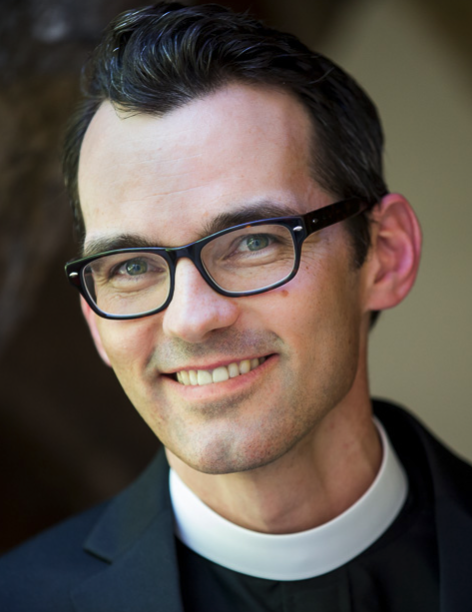A Meditation for Thursday after Ash Wednesday
By The Rev. Dr. Travis Bott
Praying with Habakkuk
The book of Habakkuk is an odd prophetic book. Prophets usually speak God’s word to his people, but Habakkuk never does that. Instead, he speaks his words to God in prayer, and God answers him directly. It’s a dialogue on the topic of sin. The prophet complains to God about the violence and injustice he sees around him in Judah (1:2–4): how long will this be allowed to continue? In answer, God reveals that he’s raising up the Babylonians to punish Judah for their sin (1:5–11). But Habakkuk objects that this only pushes the problem of evil back on the Babylonians (1:12–2:1): why should the idolatrous and brutal Babylonians get away with even greater sin? God responds by giving Habakkuk a vision: God himself will come to defeat the Babylonians and all the other wicked nations of the earth. He asks the prophet to write down the vision so that the righteous can wait faithfully for its fulfillment (2:2–4).
In Chapter 3, our Old Testament reading today, Habakkuk recounts the vision that God gave him (vv. 3–15). Its imagery evokes God’s power displayed in the exodus from Egypt and the conquest of the land of Canaan. God appears as a fearsome warrior, riding into battle against his foes. He comes across the desert surrounded by glorious light. He rides a speeding chariot pulled by powerful horses. Pestilence precedes him, and plague follows him. Mountains shake; waters flee; and the sun and moon are paralyzed in the sky. His enemies cower in fear before him. He shoots arrows and attacks with a glittering spear. He crushes the wicked, but he comes ultimately to save his people. It’s a vision of divine wrath and mercy; the two are inseparable aspects of God’s awesome work.
Habakkuk embeds the vision in his prayer to God (vv. 1, 2) which includes his own reactions. First, he’s scared. It’s a terrifying vision. He says explicitly, “[Y]our work, O LORD, do I fear” (v. 2, ESV). He also describes his physical response: “I hear, and my body trembles; my lips quiver at the sound; rottenness enters into my bones; my legs tremble beneath me” (v. 16). He realizes that God’s judgment on sin has personal implications. Next, despite his fear, he accepts God’s work of judgment and salvation. He even prays for it: “In the midst of the years revive [your work]; in the midst of the years make it known; in wrath remember mercy” (v. 2). But he accepts God’s timing: “I will quietly wait for the day of trouble to come” (v. 16). Finally, his acceptance leads to joy: “Though the fig tree should not blossom, nor fruit be on the vines, the produce of the olive fail and the fields yield no food, the flock be cut off from the fold and there be no herd in the stalls, yet I will rejoice in the LORD; I will take joy in the God of my salvation” (vv. 17, 18). Trusting God allows him to experience joy despite the most extreme circumstances of loss. Through his dialogue with God, Habakkuk has changed: he’s gone from lamentation to exultation, from complaining about sin to rejoicing in his savior.
The book of Habakkuk may be an odd prophetic book, but it’s an apt book for us at the beginning of the Lent season. Like this book, Lent is, in many ways, a dialogue with God about sin. It can be easy to talk about God or even for him, but it’s always challenging to talk to God. During Lent, we commit ourselves anew to the difficult work of prayer. We also pause to ponder the devastating effects of sin on our world—from the wars between nations to the injustices of our tribe to the hidden vices of our own hearts. Like Habakkuk, we’re tempted to ask, “How long?” How long will the sinful state of things continue? But that’s the wrong question to ask. We’re not given the answer. As the prophet learned, the right question is this: for whom do we long? Are we looking to God for the answer? God is the one who will put things right in our world and in us.
Our Lord Jesus Christ will return as a mighty warrior. As we confess in the Creed, “He will come again in glory to judge the living and the dead, and his kingdom will have no end.” If we stop to think about it, that’s a terrifying vision. It should cause us to respond with fear and trembling. “It is a fearful thing to fall into the hands of the living God” (Heb 10:31). But we also confess that our Lord has already come as a suffering servant: “For our sake he was crucified under Pontius Pilate; he suffered death and was buried. On the third day he rose again.” The hands we fall into are pierced hands. In wrath, he remembers mercy. If we accept his work, then, despite our sin and our circumstances, we have good reason to rejoice in the God of our salvation.
Fr. Travis Bott is the Professor of Old Testament and Hebrew and the Chair of the Faculty at Nashotah House. His mission is to form faithful leaders for the Church of Jesus Christ. He is committed to teaching and preaching the Old Testament as Christian Scripture, and he believes that training in biblical languages is important for the fruitful practice of ministry today. He has been a youth minister to inner-city skateboarders and holds a black belt in Tae Kwon Do. He and his wife have been married for nearly twenty-five years and are blessed with four wonderful children. They enjoy hiking in the hills and playing bluegrass music together. The readings for the preceding devotional may be located here from Forward Movement.

